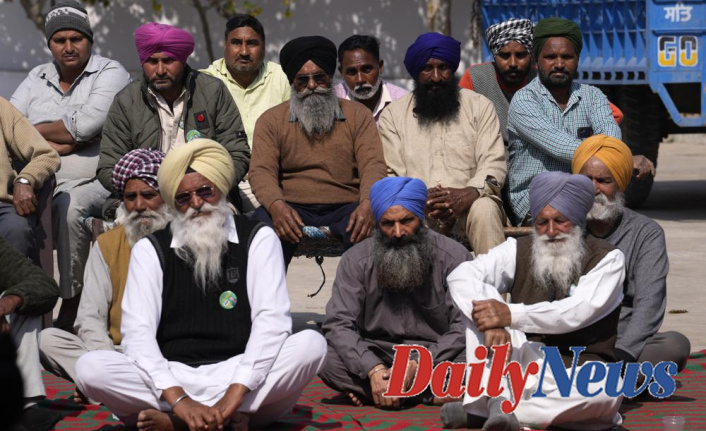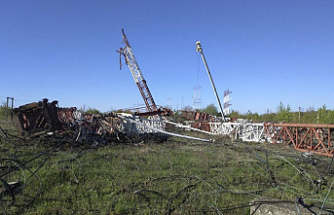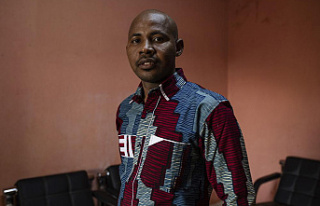A dozen supporters accompanied the 37-year-old doctor, mostly drawn from protesters who last summer hunkered down on the edges of the Indian capital to demonstrate against the farm laws pushed forward by Prime Minister Narendra Modi that they feared would decimate the income of their families.
"We have already defeated Modi once. "Let's defeat Modi again." She bellowed from an audio system attached to an automobile rickshaw. Her voice was not as flamboyant as seasoned politicians but she still received roaring applause.
This scene reflected the changing electoral landscape of India's Punjab state. More than 21 million people cast their ballots on Sunday in polls that were seen as a barometer for Modi's popularity and his party's popularity in advance of 2024 general elections. The polls will show whether Modi's year-long protests, which forced him to retreat from the farm laws, was enough to stop his party from making inroads within a state that is considered to be the "grain bowl of India."
Dholewal and other political newbies are banking their hopes on this exact formula. They want to turn farmers' anger into votes and argue that a new party will bring about change.
People are asking me why I'm late. Dholewal, who managed a medical camp at one protest site last year, said that they were waiting for her. Now, she is a candidate for Sanyukt Samaj Morcha (a newly formed political party that includes some farm unions who organized the protests).
She said, "People now know their rights."
Modi's Bharatiya Janata Party rammed farm laws through Parliament in September 2020 without consulting the House. It used its executive power to do so. His administration billed them as necessary reforms, but farmers feared the laws signaled the government was moving away from a system in which they sold their harvest only in government-sanctioned marketplaces. They feared that this would make them poorer and leave them at the mercy private corporations.
These laws led to a year-long protest as many farmers, most of them Sikhs from Punjab, stayed on the outskirts New Delhi during a severe winter and a devastating coronavirus outbreak. The laws were withdrawn by Modi in November, three months before the crucial polls in Punjab (and four other states) in March. The results of the election will be announced March 10.
Modi's BJP is a small party in Punjab, but hopes to form a government with a regional ally there and increase its voter base among farmers. This is one of India's largest voting blocs. The Punjabi people are proud of their state's religious syncretism. This is for Modi's Hindu nationalist reach. It has been thriving in most of northern India's north since 2014.
BJP is currently running its campaign to portray the corrupt Congress party state government as corrupt. It also promises grandiose promises to create new jobs, provide farm subsidies, free electricity for farmers, as well as eradicate the drug plague that has plagued the state for many years.
However, the anger against government runs deep.
According to Samyukt Kisan Mocha (or the United Farmers Front), more than 700 farmers were killed during protests due to extreme cold, record rainfalls, and scorching heat. This umbrella group of farm unions organized the agitation. Several others also committed suicide.
In December 2012, Narendra Singh Tomar, Agriculture Minister, told Parliament that there was no record of farmers' deaths. Many of the victims' families are landless or small farmers, who make up the lowest rung in India's agricultural community. This caused widespread anger.
"Where did the 700-750 farmers go?" Amarjeet Singh was shedding tears at the Modi government's responsibility for their deaths. He was living in Kaler Ghuman village, 40 km (24 miles) away from Amritsar.
According to the death certificate, Sudagar Singh, Singh's father, died in a hot September afternoon of cardiac arrest. Charan Singh, the village chief, was with him at the time. He claimed that the 72-year old collapsed after returning home from protests for weeks.
"Even though they won the final battle, those laws only brought misery into our lives. Singh pointed to a framing of his friend and said, "Do you think that we would forget that?"
The family stated that Sudagar Singh, Sudagar's younger brother, became depressed after the death. He stopped eating and worked on his farm. He also died three months later.
The Punjab government may have offered jobs or funds to the relatives of deceased persons in some cases. But farmers believe that the elections offer a chance for them to channel their anger towards meaningful change.
Singh, the village chief, stated that there are no flags of political parties flying from our homes. "We don’t trust them anymore."
The Aam Aadmi Party is one of those looking to consolidate their political dominance by the election. It was founded in 2013 to eradicate corruption and has ruled Delhi for two terms.
The party's campaign plan for Punjab isn't limited to farmers' anger. The party wants to ride on the reemerged faultlines that were blurred during demonstrations.
The protest attracted support from both the rural and urban population of Punjab. These protests are now largely ignored by city voters, who feel that the issues of farmers should be given priority since the laws were repealed.
"The youth want education and health, work, and an end of corruption. People want that. They want a shift," stated Avinash Jolly (a businessman).
Harbhajan Singh (one of the Aam Aadmi Party's candidate) stopped by a park to talk with supporters about how he would be working towards tearing down the corrupt political system. On motorbikes, a group of young men followed Harbhajan Singh waving the party symbol -- a broom for eradicating corruption -- and waved flags.
He ended his speech to a rousing applause and asked the crowd to "Teach a lesson to leaders who have destroyed this sacred land, humiliated our farmers?"
Unison, the young men chanted "Yes!"












